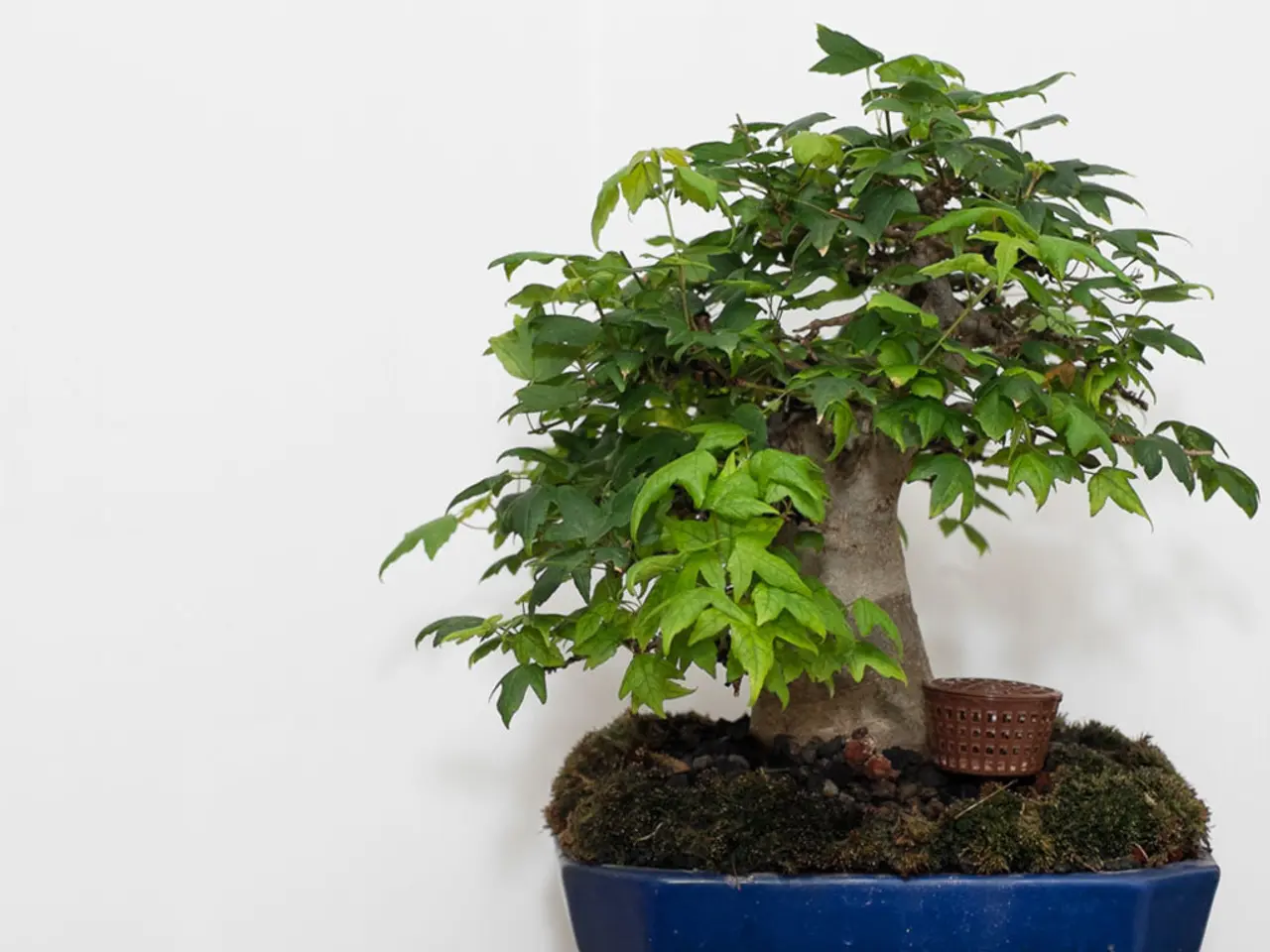Outdoor Bonsai Trees Fitting Your Region's Climate
Choosing the Right Outdoor Bonsai Tree for Your Climate
Bonsai trees, known for their miniature size and intricate shapes, are primarily designed for outdoor environments due to their need for direct sunlight and temperature shifts. The best outdoor bonsai trees vary by climate, with cold or Midwest climates (USDA Zones 3-6) requiring hardy species that can tolerate harsh winters and temperate climates.
In these colder regions, trees like Russian olive (Elaeagnus angustifolia) and Japanese maple (Acer palmatum) are suitable choices. Russian olive, which thrives in USDA Zones 2 to 7, is tough in northern climates, making it a good choice for cold outdoor bonsai cultivation. Japanese maple, on the other hand, is favored for its hardiness and attractive foliage in cooler zones.
For warmer or temperate climates (e.g., USDA Zones 7-9), a wider variety of species can be grown outside. However, for this article, we focus on cold and Midwest climates, where hardy deciduous or semi-deciduous species are preferable.
Key considerations for Midwest/Cold climates include preferring hardy deciduous or hardy semi-evergreen species like Russian olive, Japanese maple, or other native hardy trees capable of surviving winter frost and snow.
Proper watering times and care differ with climate and season, with less watering needed in cold winter months and more frequent watering in the summer growing season. Low-maintenance plants like Japanese maple are favored by some bonsai practitioners for ease of care.
Starting a bonsai garden can be overwhelming, but resources such as articles, tools, fertilizers, and webinars are available to help. In areas with frequent freezing or cold winds, bonsai trees may need to be stored in an unheated space like a shed or garage during winter.
It is essential to choose a bonsai tree that is suitable for the weather in your area to ensure its growth and health. Even if a bonsai tree is suitable for your climate, it still needs to be properly cared for to grow and thrive.
For those keeping bonsai trees on a patio or enclosed space, misting or using a humidity tray can help maintain optimal humidity levels for growth. Bonsai trees can survive in an indoor environment, but it may be challenging to replicate the outdoor conditions they require.
In conclusion, investing in a bonsai tree that is suitable for the climate in which you live is crucial for its growth and health. A bonsai tree can make a great addition to your yard or patio, and with the right care and maintenance, it can thrive for many years.
In the context of outdoor living and home-and-garden lifestyle, choosing the right outdoor bonsai tree for one's climate is crucial to ensure its growth and health. For colder regions like the Midwest, hardy deciduous or semi-evergreen trees such as Russian olive, Japanese maple, and native hardy trees are preferable for their ability to survive winter frost and snow. Proper watering and care, as well as seasonal variations, are vital factors in maintaining a flourishing bonsai garden.




